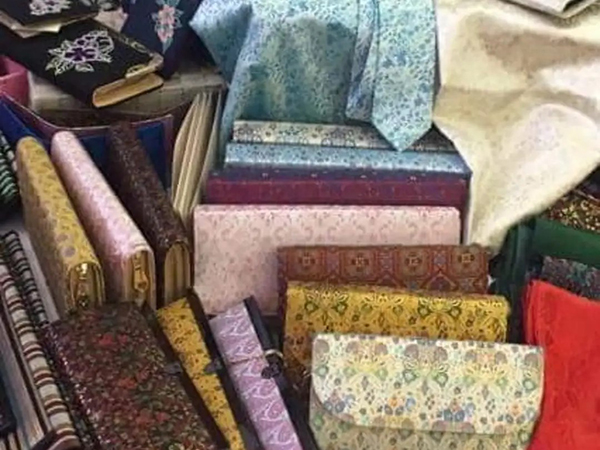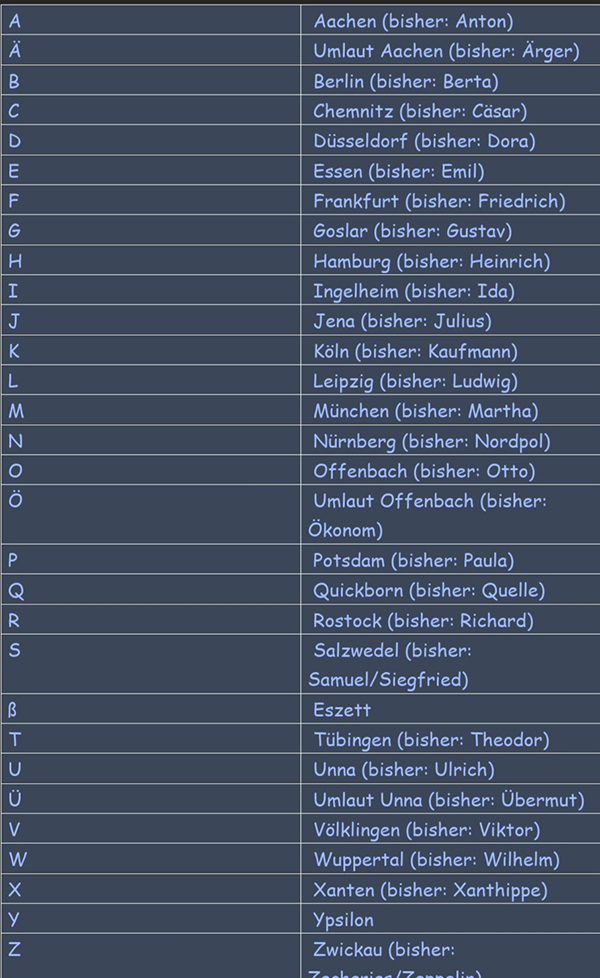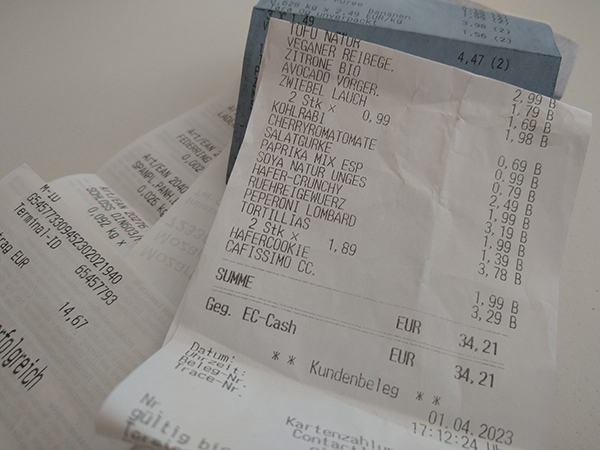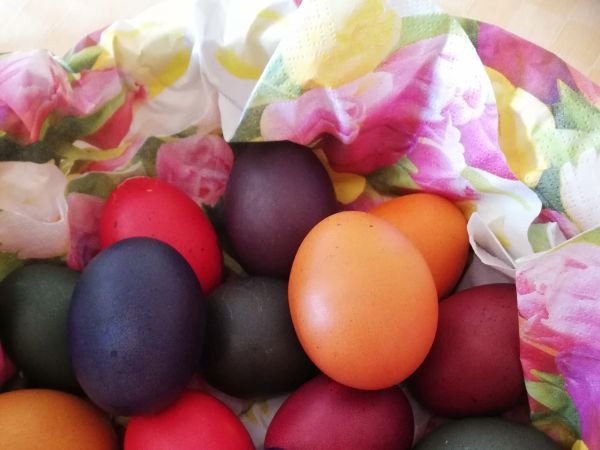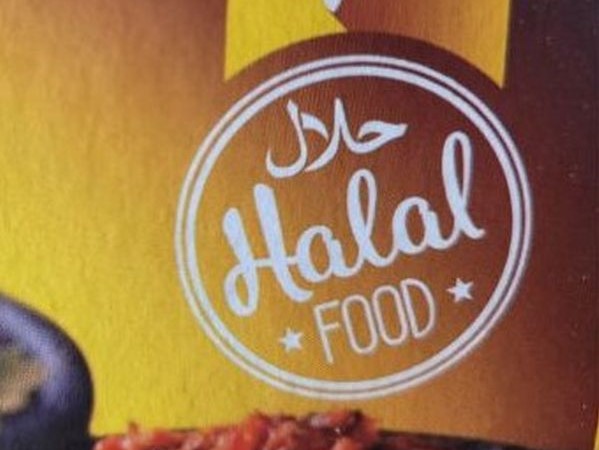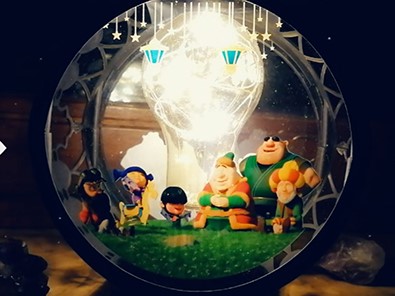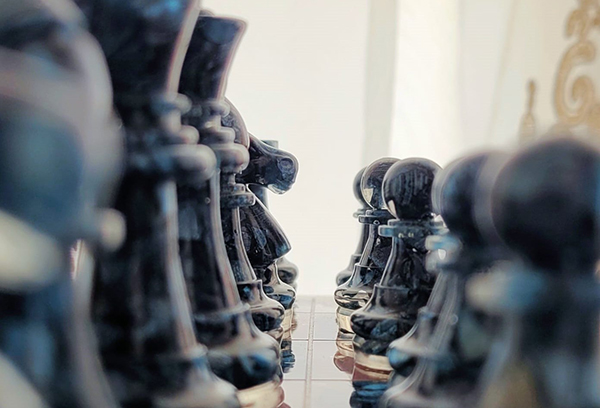By Oula Mahfouz Damask is a traditional textile fabric known for its remarkable patterning and high quality. The name “damask,” which is also commonly used in German, comes from the Arabic term “damas,” which refers to the city of Damascus in ancient Syria. The word is first documented in German in the 15th century and was adopted from the Italian word “damasto”. This is because Italian merchants first brought the damask fabric to Germany. Originally, damask fabric originated in the ancient Orient and was further developed over time in different cultures. Traditionally, damask was made from threads of silk and… Read More
Category: Diverse
The mother tongue determines how the brain ticks
By Oula Mahfouz and Michael Seifert Brain researchers at the Max Planck Institute for Human Cognitive and Brain Sciences in Leipzig, Germany, have used a magnetic resonance imaging (MRI) scanner to compare how language processing works in the brains of Arabic and German native speakers. In the process, they came across quite surprising results: “Arabic speakers have a strong connection between the two hemispheres of the brain, whereas in German native speakers the connections within the left brain hemisphere are more strongly developed,” explains Alfred Anwander, the head of the study in an interview with tünews INTERNATIONAL. “Our study is… Read More
Tübingen replaces Theodor in the spelling tablet
By Oula Mahfouz and Ute Kaiser Munich, Aachen, Hamburg, Frankfurt, Offenbach, Unna, Zwickau: This is how I have to spell my last name on the phone so that people can spell it correctly—M A H F O U Z. Until a year ago, it read like this: Martha, Anton, Heinrich, Friedrich, Otto, Ulrich, Zacharias. In May 2022, the German Institute for Standardization (DIN) abolished the old spelling table. City names replace given names in it. Since then, the T no longer stands for Theodor, but for Tübingen. The reason for the new version: The anti-Semitism commissioner of Baden-Württemberg had pointed… Read More
Mohammad and the receipt
Mohammad works in retail. When he is cashing up, he always asks, “Do you want the receipt?” The other day he called out to a man who had bought food, fruit, napkins and drinks for about 50 euros and was already driving away with the shopping cart. He came back with a red head, Mohammad perceived him as tense. The man said, “Yes, I am checked at home.” When he came home, he said, his wife would check what he had bought. Mohammad found that interesting. In Afghanistan, from where he came seven years ago, men would work for the… Read More
16 hours without: What Ramadan and interval fasting have in common
By Reem Al Sagheer and Brigitte Gisel It’s not just Muslimas and Muslims who fast. Many people practice a lifestyle of intermittent abstinence from food, even without a religious background. During Ramadan from March 23 to April 20, many Muslimas and Muslims in Germany will be fasting. But they are not the only ones who temporarily abstain from food. Even without any spiritual reference, many people have opted for a lifestyle that, on the face of it, differs little from Ramadan fasting. They practice intermittent fasting and eat only in a limited time window for a certain period of time… Read More
Colorful Easter eggs
Why are Easter eggs colorful? Children would be told: so that they can more easily find the eggs that the Easter Bunny hides for them in the green grass. But that’s just one story surrounding the brightly painted chicken eggs. Easter eggs, which are colorfully dyed in the week before the Christian Easter, have a long tradition in Christianity. Eggs have been considered a symbol of fertility there for many centuries. But how it came to egg coloring and thus to today’s “Easter eggs” is not clearly documented. There are several explanations. One of them, according to Wikipedia, says that… Read More
Halal and Haram: What’s behind these terms?
By Oula Mahfouz The term “Halal” is often used when referring to food, but what exactly does it mean in the Islamic religion? The word “Halal” means “permitted” and refers to things and actions that are allowed in Islam, but it does not only refer to food. The opposite of the word “Halal” is the word “Haram”. In between is the word “Makruh” and it means “unpopular” or “undesirable”. This denotes what one should rather not do, but if one does not do it, it is not a sin. What is considered “Halal” and “Haram”, there are sometimes different opinions.… Read More
Singing in Iraq
By Sameer Ibrahim People in Mesopotamia, today’s Iraq, knew singing and music since ancient times. There are written sources for this on clay tablets and archaeological findings of musical instruments from the Sumerian culture of up to 6,000 years ago. Everyone knows what invasions and wars Iraq has experienced, the voice of song always expressed the feelings and concerns of the people. Therefore, the Iraqi song was characterized by sadness. This sadness has become a characteristic that distinguishes Iraqi music from music in other Arab countries. A famous Iraqi singer coined the phrase, “A person without sadness is a jubilee… Read More
Ramadan Mubarak
Ramadan begins this year on March 23 and continues until April 20. Ramadan is the ninth month in the lunar calendar and begins with the appearance of the crescent moon. This date is determined by astronomical calculations by some Muslim countries and organizations, while others rely on seeing the crescent moon of Ramadan in the sky with the naked eye on the Wednesday before. The fasting person abstains from eating, drinking, sexual intercourse and smoking from sunrise to sunset. The purpose of fasting is not to suffer from hunger and thirst, but to draw closer to God and to recognize… Read More
Indians, Chinese, Persians or Arabs: Who invented chess?
By Oula Mahfouz The interest in the origins of the game began with a conversation over a game of chess in the family. “Checkmate, Omar. Do you know that the origin of chess is Arabic, because ‘checkmate’ is Arabic and means ‘the king has died’.” “No, mum, chess comes from India,” the nine-year-old replied. His twelve-year-old brother Mohammad intervened in the discussion and said, “No, you’re both wrong, the game comes from Persia.” The two boys seemed very sure of their opinion. When I looked for the origin of the game, I discovered that there are very different explanations and… Read More

